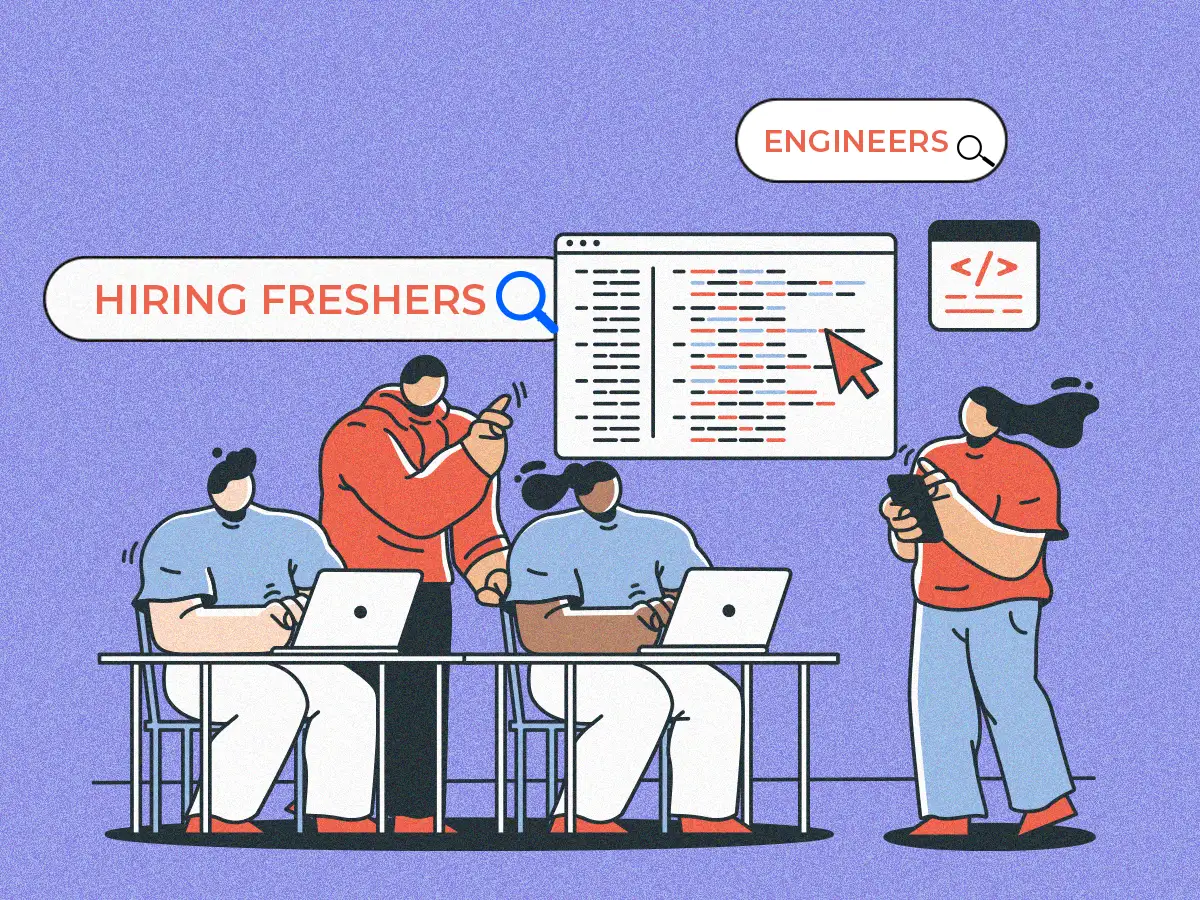 |
|
The technology sector is undergoing a significant transformation in its approach to talent acquisition, moving away from the traditional model of mass hiring of fresh graduates towards a more strategic focus on specialized skills. This shift is driven by the rapid advancements in automation, artificial intelligence (AI), and digital transformation, which are reshaping the skill sets required for success in the industry. While base salaries for bulk hires remain relatively stagnant, freshers possessing specialized capabilities are commanding significantly higher compensation packages, reflecting the growing demand for their expertise. Recruitment firms like Adecco, Quess, and NLB Services have observed this trend, with specialized hires drawing salaries up to Rs 12-15 lakh per year, compared to the Rs 2.8-3.6 lakh range for traditional entry-level positions. The increasing demand for niche skills such as AI, cloud computing, and cybersecurity is fueling this shift, as companies seek individuals who can contribute to high-impact projects and drive innovation. Sanketh Chengappa KG, director and business head at Adecco India, notes that specialized hiring is experiencing rapid growth, even as bulk hiring remains muted, highlighting the disproportionate attention and investment being directed towards this segment.
The overall hiring landscape in the technology services sector remains relatively flat, but the proportion of premium hiring has steadily increased, reaching 15-20% of overall hiring in FY25, up from 10-15% in FY24. This trend is indicative of the growing emphasis on value-driven recruitment, as companies prioritize skills and expertise over sheer numbers. Slowdown in traditional IT spending is pushing firms to optimize cost but invest in high-margin, skilled roles. NLB Services reports a surge of 36-39% in demand for AI and machine learning (ML) roles alone in 2025, even amidst a slowdown in overall tech hiring, underscoring the critical role these skills play in the modern technology landscape. The article highlights the challenges faced by middle managers, who are caught between cost pressures and the need for advanced skills. Neeti Sharma, CEO of TeamLease Digital, emphasizes the need for smaller, smarter teams with the agility to learn and upskill continuously, as AI, automation, and cloud computing become the norm. Traditional mid-level roles like project managers, testers, and system analysts are becoming less essential unless they possess expertise in areas like DevOps, AI/ML, cybersecurity, or product management, indicating a fundamental shift in the skill sets required for success in the technology sector.
Kapil Joshi, CEO of Quess IT Staffing, points out that median salaries in Indian IT companies are trending upwards, ranging from Rs 4 lakh to Rs 10 lakh per year, even as entry-level offers remain flat. Software engineers with specialized skills and experience can earn from Rs 15 lakh to Rs 45 lakh per annum, with increments averaging 5-12% this year, and top talent in niche roles receiving hikes of up to 18%. As traditional campus pipelines struggle to meet the demand for emerging tech roles, companies are diversifying their sourcing strategies to tap into alternative talent pools. While campus hiring remains a central strategy, recruiters are now leveraging bootcamps, GitHub, Kaggle, and gig-based project hiring to source premium talent. Quess is also exploring AI-powered recruitment platforms, edtech collaborations, hackathons, and specialist staffing firms to identify and attract skilled professionals. The rise of remote talent sourcing and gig-based project hiring, both within India and globally, has expanded access to a distributed and flexible talent pool, further enhancing companies' ability to find the right skills for their projects.
Internal talent marketplaces are also gaining traction as skill-first hiring becomes mainstream, enabling companies to identify and deploy internal resources with the required expertise. Companies are increasingly using coding tests, project portfolios, and online assessments to identify talent from unconventional backgrounds, broadening their search beyond traditional academic credentials. Boomerang hiring and alumni engagement are becoming more common as companies seek out proven performers for complex roles. Sachin Alug, CEO of NLB Services, highlights the shift towards structured hiring in non-metro colleges, supported by bootcamp partnerships, ‘train-and-deploy’ models, and remote work flexibility. This approach prioritizes skills, project ability, certifications, and learning agility over pedigree alone, leveling the playing field for talent from diverse backgrounds. Colleges like Amity University, Lovely Professional University (LPU), and Manipal Institute of Technology (MIT) have reported a decline in demand for entry-level coders, as the industry invests in future-ready talent and rewards students who upskill in high-impact tech domains.
Ashok Kumar Mittal, chancellor of LPU, emphasizes that while core software engineering and support roles are still being recruited in stable numbers, recruiters are placing greater emphasis on domain knowledge, practical exposure, and internship experience. Anjani Kumar Bhatnagar, head of placements at Amity University, notes that recruiters are seeking more than basic aptitude, as the rapid expansion of AI and related technologies across the business landscape has led to a substantial decline in demand for entry-level coders who lack advanced, specialized expertise. Companies are also adopting innovative hiring models, such as one-year internship programs where students join the company a year prior to graduation, and pre-placement offer (PPO) models where students are hired as interns for a minimum of six months and converted to full-time employees based on their performance. Sriram, associate director at MIT, concludes that the demand for plain vanilla skills is decreasing, and future hiring will be based on specific skill sets, potentially leading to a shift from branch-specific hiring to skill-specific hiring. This comprehensive analysis underscores the profound changes occurring in the IT hiring landscape, as companies prioritize specialized skills and innovative talent acquisition strategies to navigate the challenges and opportunities of the digital age.
Source: IT firms pivot from mass fresher hires to specialised talent signups
